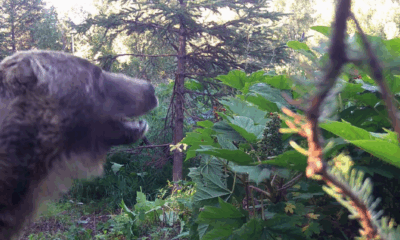Hunting
Should We Import Exotic Species to Hunt?

Gemsbok, also called oryx, are a non-native species that can be legally hunted in the wild or on high-fence ranches.
America has a new Secretary of the Interior … what does this mean for “safari” hunters?
The Senate recently voted to confirm Rep. Deb Haaland as our new Secretary of the Interior. Haaland, the first Native American woman to hold a White House Cabinet secretary position, is a Pueblo woman who has publicly stated her support for hunting. The Dallas Safari Club (DSC) has some questions, however…and those questions are ones that many Americans didn’t know needed to be asked. Will Haaland limit or allow the hunting of non-native (“exotic”) species here in America?
The background
One of the very first things that happened when the very first European settlers came to America was they released non-native species into the ecosystem. In most cases, these non-native species did very well in the wild here. From pheasants (which were imported from the Far East) to horses, to pigs, some of these species were released accidentally; others much more deliberately so.
These days, of course, American sportsmen are wiser than to just let exotic species out into the wilderness. Instead, these days, animals from Africa and Asia cavort and breed in high-fenced ranches, usually in places like Texas. There, American hunters can (for a steep price) pay to hunt everything from oryx, to black buck, to zebras. This practice is somewhat controversial even among hunters, as many don’t consider it “fair chase.”
However, these high-fenced hunting ranches have turned out to be reservoirs for species that are disappearing in their native land. What’s more, the fees hunters pay help support conservation of our native species.
The big question
The DSC does have concerns. Their position begins with the fact that as a Representative from New Mexico, Haaland signed onto the Conserving Ecosystems by Ceasing the Importation of Large Animal Trophies Act (CECIL) in the 116th Congress. “This legislation,” they state, “based on emotion and not sound science, remains very troubling, as it acts against the will of sovereign nations and without their consultation. Further, it would eliminate some of the most successful conservation programs in Africa and does not respect the rights of those that manage and live with the species the legislation claims to protect.”
DSC Executive Director Corey Mason continued, “We remain concerned with legislation such as the CECIL Act and other anti-hunting initiatives that Secretary Haaland has supported in the past, but we look forward to working with Department of the Interior to support science-based conservation for the benefit of all wildlife and wildlife habitat.”
Whether or not high-fence hunting is something that interests you–and for many hunters, the answer is a resounding “no”–the next year will reveal much about the Biden administration’s attitude towards conservation and hunting. All we ethical hunters can do is hope that these decisions are made based solely on science, not emotion.
-

 Hiking & Climbing1 week ago
Hiking & Climbing1 week agoWhen Bears Bring the Drama: A Tail—or Should I Say “Tale”?
-

 Adventure1 month ago
Adventure1 month agoREACTION: Trump’s Make America Beautiful Again Agenda
-

 Gear2 months ago
Gear2 months agoLet Freedom RING! Primary Arms’ Independence Day Category Sale Starts NOW
-

 Adventure2 months ago
Adventure2 months agoU.S. Bighorn Sheep Going Home to Canada
-

 Camping & Survival2 days ago
Camping & Survival2 days agoField Dressing 101: Knowing When It’s Their Turn
-

 Fishing4 weeks ago
Fishing4 weeks agoMy Wacky Bush Brings All the Bass to the Yard
-

 Adventure3 weeks ago
Adventure3 weeks agoNo Ivy Required: University of Montana’s New Center for Hunting and Conservation


